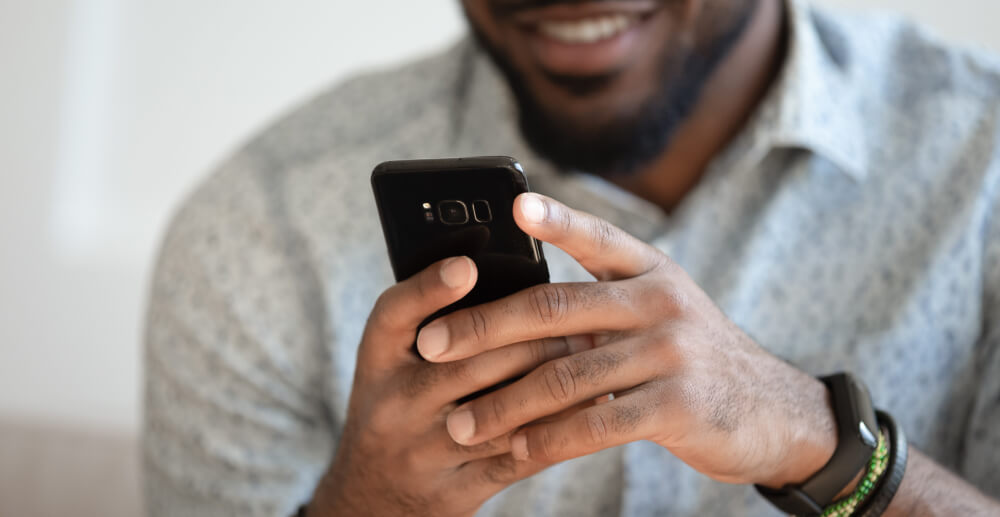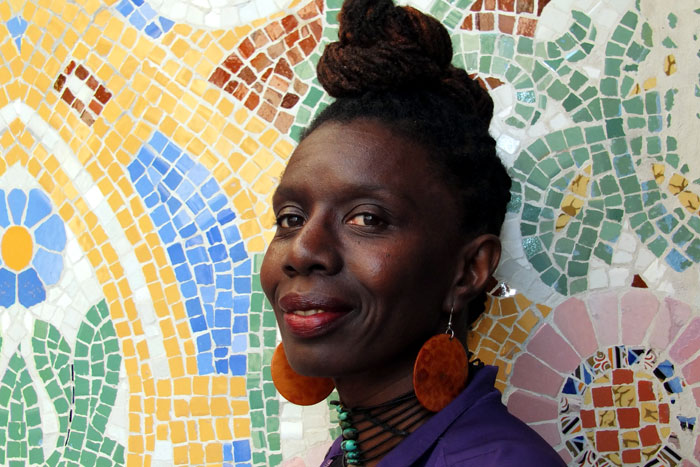Dr. Valerie Mason-John M.A (hon.doc) is the co-founder of 8 Step Recovery and one of the leaders in the secular recovery movement.
At Workit, we all walk different paths towards addiction recovery, and we encourage everyone to find one that speaks to them. Recovery, like shoes, aren’t one size fits all. The Spirit section of the Workit program is devoted to mindfulness, and if you love working spirit, then Valerie Mason-John’s work is right up your alley. I tracked down Valerie Mason-John to ask her about her history and her own recovery, as well as the movement she’s creating.
Kali: You say, “What I have to offer is my recovery.” Your recovery story is remarkable. Can you summarize your journey?
Valerie: My Curriculum Vitae.
- Sugar addict from aged 6 to 11
- Shoe conditioner sniffing aged 13 to 15
- Shop lifting addiction aged 13 to 15
- Anorexia aged 17 to 21
- Chronic Bulimia Nervosa aged 21 to 40
- Uppers Freak 20s to 35
- Champagne Late 20s to 38
- Meditation from 27 to 55 and hopefully beyond
What Social Service Records say:
- Abandoned at 6 weeks.
- With three foster families before the age of 5.
- I became a problem because I was bleaching my skin
- Enter Orphanage aged 5
What I remember:
- Named Gruesome from 5 to 11
- Sexual abuse, Sexual assault from age 7 to… early 20s
- Sent to live with biological mother aged 11
- Taken away by the police aged 12 and half
- Attempts at taking my life aged 12, 13, 18
- Went off the rails aged 13
- Living on the Streets aged 14 – 15
- Locked up for shoplifting in Juvenile Centres
- Attempt to take my life 18 and really meant it
- Aged 27 guy tries to strangle me to death -and my life changes
What was your first touchpoint with recovery?
Knowing I was sick and I wanted out of that hell realm. I wanted to live, but not how I was living. I desperately wanted change.
How do you think we can better reach people who are still in active addiction, but seeking change?
The guidance appears when we are ready for it. You can talk to people, lecture people, show them how their life is being wrecked. But if they are not ready nothing will work. So the recovery is in the hands of the person who is lost in addiction. When they open up to change, we can reach them. But we have to know that sometimes people don’t want to go all the way. And we have to realize that for some people they will continually pick up and put down. Because addiction is the dis-ease of the brain, heart, mind, we must be compassionate with people who continually relapse.
You co-founded 8 Step Recovery, an alternative to 12-step recovery based on Buddhist teachings. What made you realize addiction treatment needed this additional program?
People realized that I had something to offer. They wanted to know what was it that made a difference in my life? When I reflected I realized that there were many people I grew up in the orphanages, and other institutions that had taken their life, were severely depressed, in their addiction, and not very happy at all. So when I was invited to write a new book by my publisher, I knew then it was time to share my path to recovery. I invited a psychiatrist friend of mine to write with me because I wanted it to have integrity. Not another misery story. But a universal story that all beings can benefit from.
“Seeing how we create extra suffering in life is the beginning of us breaking out of the prison of our minds.”
12-step recovery has Christian roots, and Refuge Recovery and 8 Step Recovery follow Buddhist teachings. But so many addicts struggle with the spiritual aspect of support groups. Do you think a spiritual solution is necessary for recovery?
Yes, and it can be Pagan, or animal, or nature. Basically, a spirituality that opens you up to kindness, compassion, and wisdom. It’s inevitable that many people with addictions struggle with spirituality because initially, their choice of addiction was unconscious about looking for spirituality, salvation, meaning of life, but the addiction hijacked their presence with one ness, with Allah, with God, Buddha, or Spirit.
Co-founder of AA Dr. Bob once wrote in a pamphlet Spiritual Milestones: “Consider the eight-part program laid down in Buddhism: Right view, right aim, right speech, right action, right living, right effort, right-mindedness and right contemplation. The Buddhist philosophy, as exemplified by these eight points, could be literally adopted by AA as a substitute for or addition to the Twelve Steps.”
In your TED talk, you say, “Forget about drugs, alcohol, food, sex, or rock and roll, my biggest addiction is my thinking.” What advice do you have for recognizing thinking as the problem, when it’s so easy to blame the substances or behaviors themselves? In active addiction, it’s easier to even blame our external circumstances than our addiction or our thinking.
Human beings have an inbuilt tendency to move away from all experience with either blame, self-pity, and/or distraction. Once we recognize that we can begin to kindly call ourselves out. Learning to be with experience is the magic pill to recovery. And that pill is excruciatingly painful to take. Few have the courage to sit and be with whatever arises without narrative. It’s easier to move into blame, self-pity, and distraction because they can make us feel more alive than sitting with unpleasantness. Seeing how we create extra suffering in life is the beginning of us breaking out of the prison of our minds.
You are called the Bully Doctor. How does bullying influence addiction?
Many people who are bullied escaped to a distraction for solace. There is a high correlation of young people who were repeatedly sexually abused (which is a form of bullying) with eating disorders. High correlation with homophobic bullying and drink and drugs. Targets of bullying often end up having addictions of some kind.
Who do you turn to for guidance and leadership in the recovery world or in your personal life?
I turn to my students. They keep me sober and abstinent. They inspire me and teach me. I seek guidance from my sponsor and mentor. In the recovery world, I seek guidance from The Buddha, Dr. Ambedkar, Kevin Griffin, Dori Langevin, Joan Tollifson, and Noah Levine. In my personal life, I am accountable to my partner who has been in AA and abstinent for 30 years. I seek guidance from the woman who ordained me Ratnavandana, and from several of my friends.
What advice do you have for people who come in and out of recovery, but can’t seem to stop relapsing?
Keep on picking yourself back up and when you do, give yourself a big hug, and say I love you. Reframe the word relapse. Know when you pick up in one moment you can put it down in the next. Even if you went out on a bender last night, you can put it down in the morning. Get honest!
Do you have any songs that get you motivated and pumped up when you’re feeling down?
Classical Music soothed my soul. Rave music. Techno, Trance saved my life. I still go out and dance without any stimulants.
What recovery tool do you use more than any other?
The breath. My body is the car I drive around 24/7, I get to use the breath as my hand break on thoughts of picking up. The breath is also my gear stick, if I breathe fully into my body, it stops me from going into automatic pilot.
What is your favorite act of self-care?
Giving myself enough sleep. If I don’t have enough hours for my body, I am at risk of picking up, relapsing, losing my cool. In brief, when I don’t sleep enough I’m threatening my sobriety of mind and abstinence.
Despite all your impressive accomplishments, I’m sure you still have struggles like we all do. What is your biggest challenge today, and how are you dealing with that?
Walking my talk. It’s so much easier to write books, lead retreats, give public talks. But to live recovery breath by breath, moment by moment is the biggest challenge I face today.
Watch Dr. Mason-John M.A (hon.doc) on TEDx:
TEDx Speaker Dr. Valerie Mason-John M.A (hon.doc) is one of the new leading African descent voices in Secular Mindfulness approaches for addiction. She is the co-founder of the Mindfulness Based Addiction Recovery (MBAR) and the co-founder and author of Eight Step Recovery Using The Buddha’s Teachings to Overcome Addiction. There are meetings in six countries. She is the new President of the International Organization Buddhist Recovery Network, and her mission is to make secular mindfulness and Buddhist recovery accessible to diverse communities. For more information www.valeriemason-john.com.





